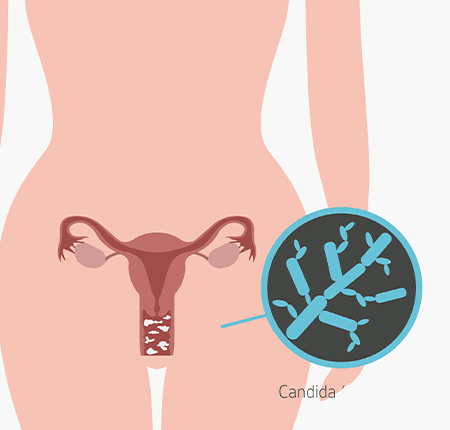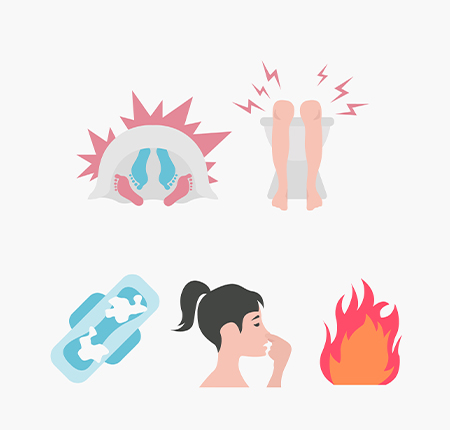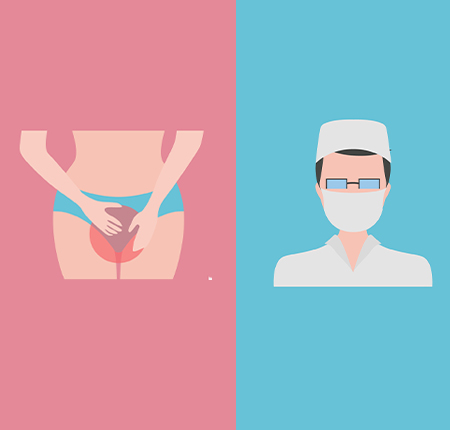
One of the most common fungi that normally lives in our body - in the mouth, in the intestines, on the skin and mucous membranes, in moist areas - is Candida Albicans. It usually does not cause problems, but when the environment in which it lives changes, Candida can multiply and cause an (equally common) infection: candidiasis.

What is candidiasis?
Candidiasis is a common condition that resolves if it is identified and treated correctly. But candidiasis can be of several types, depending on the affected environment. So, candidiasis can be:
Vaginal
Oral, pharyngeal, esophageal
breast
skin
Vaginal candidiasis: symptoms
Although it can be uncomplicated, vaginal infection can cause discomfort and symptoms can include stinging and burning. In women, symptoms can be both mild and severe, including:
Itching and irritation in the vagina and vulva
Burning sensation during urination or during sex
Irritation, redness and inflammation of the vulva
Vaginal inflammation and pain
Whitish, odorless, cheesy-looking secretions
Watery secretions

Men can also suffer from candida infections. In their case, candidiasis is manifested by irritation, white spots, itching and discomfort when urinating. But remember: candidiasis is not an infection that is transmitted through sexual contact! Therefore, if the partner has candidiasis, it does not mean contamination.
Instead, candidiasis occurs against the background of weakened immunity or other pre-existing conditions.
Complicated vaginal candidiasis (severe/recurrent)
Although candidiasis is treated, sometimes the symptoms return and the infection can recur for a long time. In some cases, you may have a complicated candida infection when:
The redness is extensive, there are swellings and itching that cause sores
You have more than four candida infections in a year
Candidiasis is caused by a less common type of fungus
You are pregnant
You have uncontrolled diabetes
You have a weakened immune system (either due to medicines or autoimmune diseases or infections, for example HIV infection)
Vaginal candidiasis vs. urinary infection
Another common infection in women is urinary tract infection (UTI) . Although it is possible to have one or the other, or even both infections at the same time, UTI and candidiasis are two different conditions!
UTIs occur when Escherichia coli (E.coli) bacteria affect the system that carries urine out of the body—the kidneys, bladder, and the tubes that connect them. It occurs more often in women because the female body has a shorter urethra, which favors the multiplication of bacteria, but it also develops in men.
Although the causes are bacteria, there are several risk factors that are good to know, which we wrote about in our article . Because, like candidiasis, it is important to know that urinary infection is not a sexually transmitted disease.
Vaginal candidiasis vs. bacterial vaginosis
And speaking of differences, Bacterial Vaginosis (BV) is the most common type of vaginal infection in women between the ages of 15 and 44. The main causes are bacterial imbalances caused by vaginal douches and sex, but this is NOT a fungal infection like candidiasis.
Although BV has similar symptoms to candidiasis (discharge, burning and itching) and distinguishing between the two can be difficult, you should know that candida infection does not cause long-term complications, but if you do not treat bacterial vaginosis, it can lead to to complications such as fertility problems or premature birth and an increased risk of contacting sexually transmitted infections.
Moreover, in the treatment of bacterial vaginosis you need a prescription from the doctor for antibiotic drugs.
Is vaginal candidiasis transmitted? How?
No, vaginal candidiasis is not transmitted, and because it is not a sexually contagious infection, there is no need for treatment in the case of the partner either.
When should you go to the doctor?

It is important to consult your doctor when
You have the symptoms of candidiasis for the first time
You are not sure if you have a candida infection
You took treatment but the symptoms did not improve with medicines, antifungal creams or suppositories
You also have other symptoms
Diagnosis of candida
Because the doctor can give you a correct diagnosis, and for that, he will consider your medical history to see if you have other conditions or if you are pregnant. In addition, you will need to have some blood tests.
Vaginal candidiasis: causes and risk factors
But what are the causes of vaginal candidiasis? The most common causes are, among others:
Long-term antibiotic treatment (causes the imbalance of beneficial bacteria that control the growth of fungi such as candida)
Diabetes mellitus (high blood sugar causes an imbalance in the normal pH of the mucous membranes)
Corticosteroids in the therapy of autoimmune diseases
Some treatments for arthritis
Vaginal infections caused by sexually transmitted diseases (by changing the pH)
Untreated urinary tract infections
Use of tampons containing plastic and underwear with synthetic fibers
Hormonal contraceptives , intrauterine devices , condoms, spermicides, vaginal lubricants, vaginal douches
Hormonal changes during pregnancy and the menstrual cycle
Low immunity, chronic conditions such as HIV, immunosuppressive treatments, chemotherapy, radiotherapy
Stress, incorrect diet and poor hygiene
Treatment for candidiasis
You may be wondering how candida is treated? Treatment for these infections always depends on the severity and frequency of the infections you have, as well as other conditions.
For example, if you have mild or moderate symptoms, you can use local treatments (applied to the vagina). You will find antifungal drugs are available in the form of creams, ointments, tablets or suppositories and the doctor will recommend the right treatment based on a prescription. Because the treatment must always be recommended by the doctor, in precise doses, for certain forms of infections.
It is important to diagnose and establish the exact type of fungus, even though it may be a mild condition, because the infection can get worse if it is not treated properly.
Can vaginal candidiasis be treated at home?
There are also alternative treatment methods when you want to avoid medication, but we do not encourage home treatment.
You will find numerous methods and ingredients in the home treatment of candidiasis, popular natural remedies such as coconut oil or tea tree oil cream, but the most effective and safe for your health is to consult your gynecologist.
Ways to prevent candidiasis
Whether or not there is a "best treatment" for candidiasis, the good thing is that you can keep infections under control by taking different actions. And perhaps the most important step you can take today to reduce the risk of candida infections, is to make sure you wear cotton underwear without synthetic materials, which allows the skin to breathe and is not too tight on the body, and during menstruation to use natural products, made of 100% organic cotton. They are recommended by the gynecologist, because products containing plastic and chemical bleaches can cause irritation and infection.
In addition, you can also prevent candidiasis by avoiding:
Tampons containing perfume
Foaming shower gels
Scented absorbents and products with chemical bleaches
Vaginal washes
Very hot baths
Antibiotic drugs when not needed
Wearing wet clothing or underwear for too long
Instead,
If you have diabetes, maintain constant glycemic control
If you use antibiotics in a treatment, make sure you help your bacterial flora to return to balance (prebiotics)
If you use the toilet, always wipe from front to back to avoid bringing bacteria to the vulva and vagina area
If you're on your period, change your tampon or pad as often as possible
Candidiasis during pregnancy
Hormonal changes during pregnancy can increase your risk of thrush, and it's not uncommon. On average, 3 out of 4 pregnant women may have a candida infection. Especially due to the fact that when you are pregnant, the vaginal pH changes and creates the perfect environment for the growth of fungi. During pregnancy, if you experience candidiasis, you will need to undergo treatment because the infection can be passed on to the baby at birth.
Genital candidiasis in babies and children
Yes, newborns can also have the symptoms of candidiasis at birth or shortly after birth. It is, in fact, an extremely common infection, transmitted from the nursing mother and favored by the child's undeveloped immune system. But this is not a cause for concern, it is treated.
Genital candida in men
In general, men who have candidiasis are asymptomatic, but there are also cases where they can have varying symptoms. For example, candida infection can cause pain and discomfort during intercourse, hyperactivity, constipation or chronic prostatitis in men. And at the genital level, the most common symptom is itching.
Untreated vaginal candidiasis - what complications can occur?
When you notice the symptoms of candidiasis, it is extremely important to see a doctor. This infection can get worse if it is not treated properly, in addition, complications such as:
If you are pregnant, there is a risk of premature birth
If the infection reaches the blood, it affects vital organs
It can be transmitted to the child at birth
Frequently asked questions:
Can vaginal candidiasis affect my period?
Candidiasis usually occurs before menstruation, because the hormonal level changes. But once the period ends, the level of estrogen balances and the vaginal flora returns to normal. It is important to only use products that do not contain chemical ingredients, plastic, perfumes, bleaches or synthetic fibers: so choose absorbents or tampons as natural as possible (100% organic cotton) and change them as often as possible, and if you are prone to candidiasis , avoid tampons.
Why does candidiasis recur?
Recurrent vaginal candidiasis is a chronic, debilitating infection that affects millions of women worldwide every year, and most often, it recurs on the basis of a weakened immune system.
Are there rapid tests for vaginal candidiasis?
There are some quick tests that can be used by both women and men and that can detect a candida infection through the urine, but we recommend a visit to the gynecologist!






















